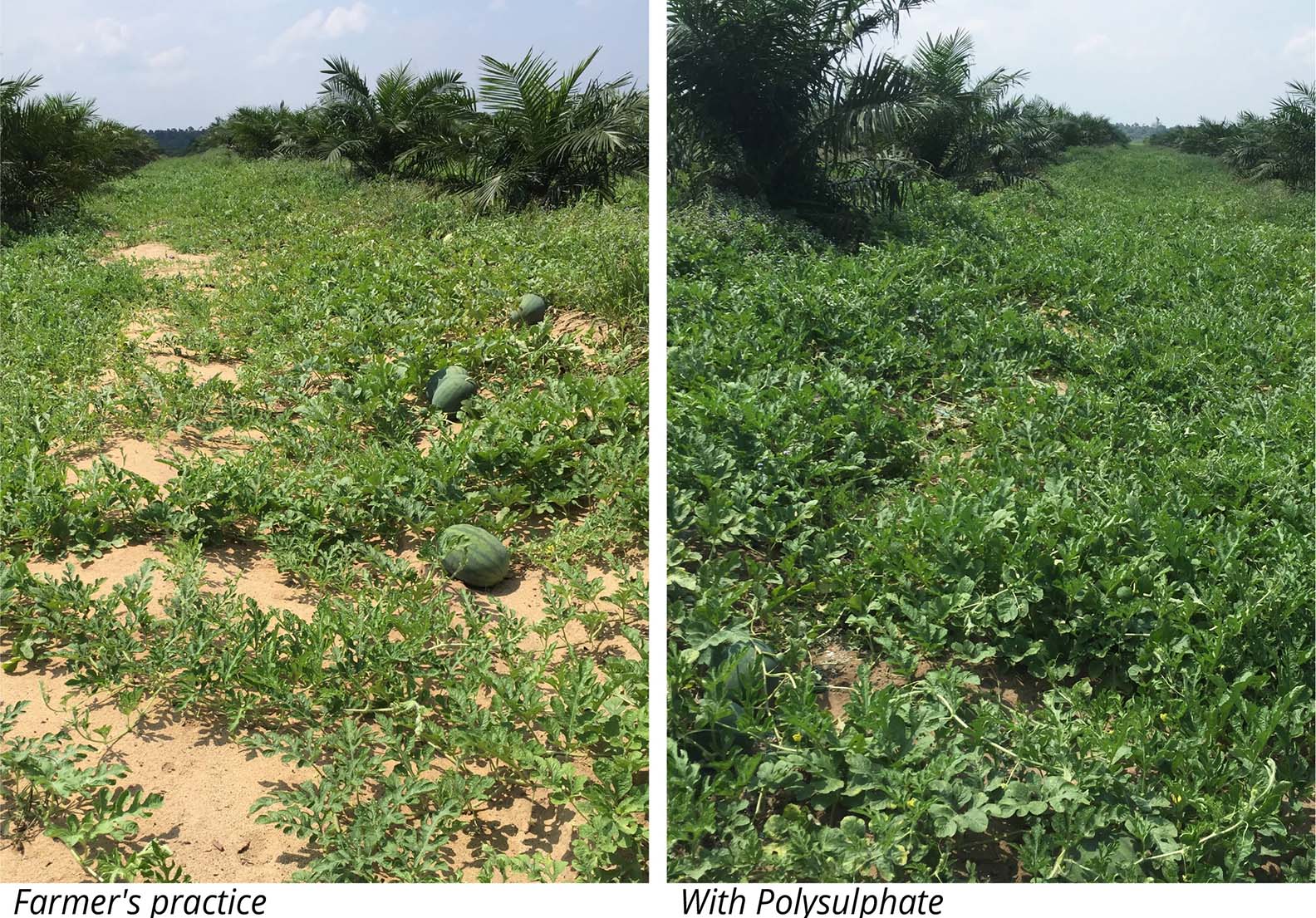Polysulphate Watermelon Trial in Malaysia
33
Kahang, Johor, Malaysia 2017
33
Key Conclusions
Watermelon yield increased by 33% in the Polysulphate plot compared to the farmer’s usual fertilizer treatment plot.
Objective
To demonstrate the effectiveness of granular Polysulphate to improve the growth and yield of watermelon (Citrullus lanatus) grown on a sandy loam soil in Malaysia.
Trial Details
Trial station
Kahang, Johor, Malaysia
Crop
Watermelon
Product
Granular Polysulphate
Assessments
Watermelon yield
Treatments
This demonstration consisted of 2 treatments. The 1st was the farmer’s usual practice of 400 kg/ha of NPK compound fertilizer (12-12-17 + 2MgO) and 200 kg/ha of 16-16-16 + 2MgO. The 2nd treatment was the farmer’s practice + 100 kg/ha of granular Polysulphate. In both treatments fertilizers were applied as top dressing on the planting bed before transplanting.
Treatments
This demonstration consisted of 2 treatments. The 1st was the farmer’s usual practice of 400 kg/ha of NPK compound fertilizer (12-12-17 + 2MgO) and 200 kg/ha of 16-16-16 + 2MgO. The 2nd treatment was the farmer’s practice + 100 kg/ha of granular Polysulphate. In both treatments fertilizers were applied as top dressing on the planting bed before transplanting.
Results
- During early growth, minimum mortality and root fungus infection was observed in the Polysulphate treatment. Young shoots appeared stronger and greener.
- Vegetative growth in the Polysulphate treatment was more vigorous, with bigger shoots and leaves which covered all the soil.
- Yield increased by 33% in the Polysulphate plot compared to the farmer’s usual fertilizer treatment plot. Bigger fruits were also observed with Polysulphate application.
Watermelon yield increased by 33% in the Polysulphate plot compared to the farmer’s usual fertilizer treatment plot.

Watermelon fertilized with Polysulphate showed more vigorous vegetative growth with bigger shoots and leaves, covering all the soil.




